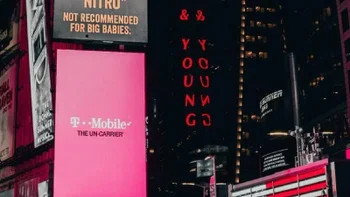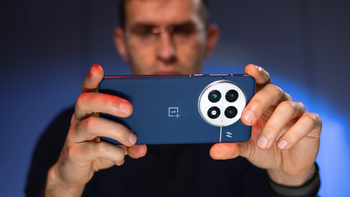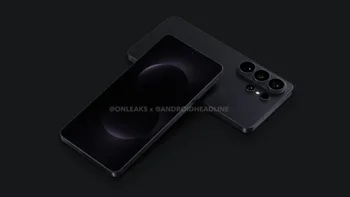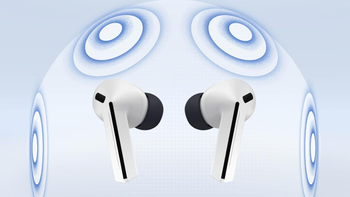Meg Whitman's HP plans seem to be more buzzwords than solutions

HP CEO Meg Whitman has had a pretty difficult road to travel in her first 5 months at the helm of the company, and now she has detailed what she sees as the future of HP both in terms of hardware and in its as yet failed software in webOS. Whitman was insistent that, despite setbacks, her time as CEO of HP has brought a new culture and more focus to the company.
In an interview with CRN, Whitman said that one of her first acts as CEO was to essentially do away with the divide between executives and the rest of the company staff. She has ordered a barbed wire fence which had demarcated the executive parking lot to be removed, and now all employees can use that space. And, she has done away with executive suites, so even she works from a cubicle. In her opinion, the over-the-cubicle conversations are the ones that "really matter".
Whitman also talked about the plan forward for HP, in which she insisted that at its core HP is a hardware company, although she did admit that HP has become something of a software company as well. However, when talking software, Whitman did not bring up webOS until directly asked about the platform. Instead, she seemed to want to emphasize that HP's focus with software is in security. Overall, the themes that Whitman continuously came back to were security and enterprise.
This focus on enterprise could very well have been due to the fact she was being interviewed by CRN, a decidedly enterprise-centric publication, but Whitman didn't mention any consumer devices. She did say that HP will be making multiple Windows 8 tablets, first with an x86 chip, and once support is in place from Microsoft, HP will also build an ARM-based Windows 8 tablet. And again, Whitman stressed the company's focus on security and specifically in "protecting the enterprise's data." She continued to focus on security when comparing the strengths of a Windows 8 tablet compared to the iPad, as well as pushing Windows 8 as tablet for doing "real work".
On the topic of webOS, Whitman acknowledges that the team was without focus for a while, and that the team has lost important members, but she is still confident that the platform will attract capable developers and engineers, especially since, "now there is a clear vision of what [HP is] trying to accomplish (with webOS)." Unfortunately, that plan forward wasn't really explained, and instead Whitman just fell back onto buzzwords that have no real meaning any more. Whitman said that webOS would have "huge advantages... over iOS, which is a closed system, [and] Android, which is incredibly fragmented and may ultimately be more closed with [Google's] acquisition of Motorola Mobility."
The trouble with saying that is it doesn't mean anything. Yes, iOS is closed, but that doesn't explain why webOS would be in any way better. We already know that the philosophy of webOS is in using HTML5 apps which is a more open process, but unless there are committed developers, that philosophy means nothing. Apple's core strengths are in design, integration, and developer support, and much of that depends on the closed aspect of iOS. Also, webOS will be open-source, meaning any company can use the platform on its hardware, but it also means that HP gets no licensing fees from those manufacturers, yet Whitman doesn't say exactly how that system will benefit HP.
Then there are the comments towards Android, which are just fear-mongering at its worst, and again give no actual indication of why webOS will be any better. There is no mention of how or if HP will assert any control over webOS once it has been made open-source as Google has with Android. People toss around the word "fragmented" in regards to Android, but the truth is that without Google's guiding hand and AOSP coalition, there really would be true fragmentation in Android because it would be a complete free-for-all. At the very least, Google's proprietary top-half of Google Apps and standards creates a level of consistency in consumer Android devices. Not to mention, that aside from a possible green light for Motorola to sue Apple, Google has kept its promise to let Motorola act independently, and has not closed down Android in any way.
Ultimately, Whitman claims to have a clear plan for HP, but that plan only seems to extend to enterprise products and Windows 8 tablets. And, even there Whitman talked about security and productivity of Windows 8 tablets, the power and design of the products, and HP's relationships with Microsoft and Intel, but didn't talk about the only real concern we have about Windows 8 tablets: the price.
If there is a clear plan for webOS, Whitman hasn't let it be known, and instead relied on negative buzzwords that don't really have any meaning any more. As we've seen with Apple's revenue and sales reports, there is a huge market for "closed" systems. And, as we've seen from Android's continued rise in market share, there is a huge market for "open" systems. What Whitman didn't really mention was how webOS would fit into that market, nor how HP would benefit from any potential adoption of webOS.
source: CRN
Follow us on Google News














Things that are NOT allowed:
To help keep our community safe and free from spam, we apply temporary limits to newly created accounts: